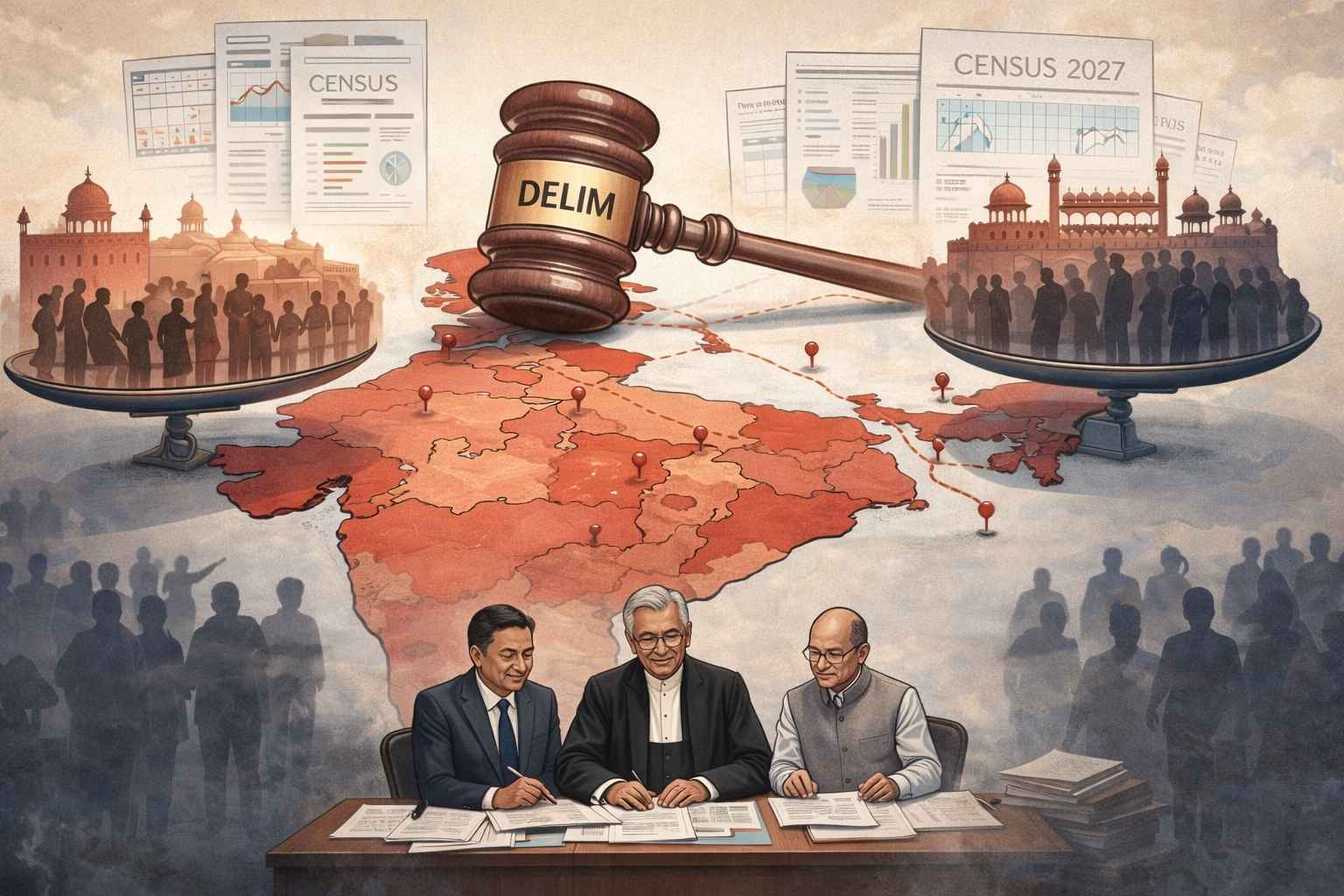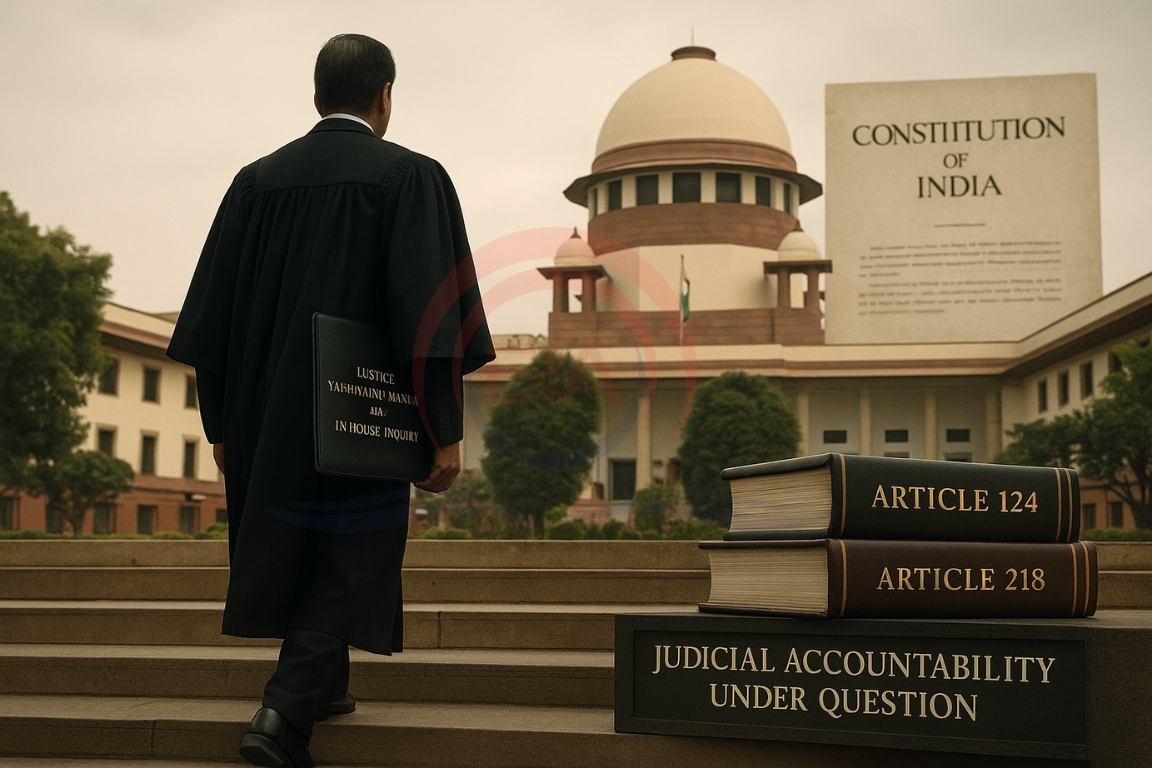The Union Home Ministry informed the J&K and Ladakh High Court that the Lieutenant Governor (LG) of J&K can nominate five members to the J&K Assembly without the aid and advice of the Council of Ministers. This raises key questions about democratic accountability and the role of the LG in Union Territories with legislatures.
Constitutional Provisions on Nominated Members
- Parliament: 12 members are nominated to the Rajya Sabha by the President (on advice of Union Council of Ministers).
- State Assemblies: Earlier, Governors could nominate one Anglo-Indian member (discontinued in 2020).
- Legislative Councils: In six States, about one-sixth members are nominated by Governors (on advice of State Council of Ministers).
Union Territories with Assemblies
- Delhi (1991 Act): 70 elected members; no nominated MLAs.
- Puducherry (1963 Act): 30 elected MLAs + up to 3 nominated by Union Government.
- Jammu & Kashmir (2019 Reorganisation Act, amended 2023): 90 elected members.
- LG can nominate up to five members:
- Two women
- Two Kashmiri migrants
- One displaced person from Pakistan-occupied Kashmir.
- LG can nominate up to five members:

Judicial Standpoints
Puducherry Case (K. Lakshminarayanan vs Union of India, 2018)
- Madras HC: Upheld Union Government’s right to nominate members without consulting UT Ministers, but suggested clearer procedure.
- SC (on appeal): Set aside these recommendations.
Delhi Case (Govt. of NCT vs Union of India, 2023)
- SC introduced the “Triple Chain of Accountability”:
- Civil servants → accountable to Ministers.
- Ministers → accountable to Legislature.
- Legislature → accountable to People.
- Held that LG must act on advice of Council of Ministers in all matters except those beyond Assembly’s legislative powers.
- This reasoning may also apply to nominations in UT Assemblies.
- SC introduced the “Triple Chain of Accountability”:
Concerns with Nominated MLAs
- In smaller assemblies (Puducherry, J&K), nominated members can alter majority equations, potentially destabilising elected governments.
- Risk of political misuse if nominations bypass elected Council of Ministers.
- Goes against democratic principles of accountability to the people.
Way Forward
- While UTs do not have the full powers of States, their elected governments must remain accountable to the people.
- In J&K, which earlier had special statehood, democratic safeguards are even more important.
- Best approach: LG should make nominations on the advice of the elected Council of Ministers, to protect democratic values and prevent misuse.
DIFFERENCE BETWEEN STATES AND UNION TERRITORIES (UTS) IN INDIA
Formation & Authority
- States: Created on the basis of language, culture, or administrative convenience. They have their own government.
- UTs: Created mainly for administrative reasons, smaller size, or strategic importance.
Governance
- States: Have their own elected Legislature, Chief Minister, and Council of Ministers.
- UTs: Directly governed by the President of India through an Administrator/Lieutenant Governor (except Delhi, Puducherry, and J&K which have legislatures).
Powers
- States: Have powers under the State List of the Constitution and can make their own laws.
- UTs: Limited powers; most laws are made by Parliament (except in UTs with legislatures).
Representation
- States: Have representation in both Lok Sabha and Rajya Sabha.
- UTs: Have representation in Lok Sabha, but only Delhi, Puducherry, and J&K have seats in Rajya Sabha.
Simple way to remember:
- States = Full governments with more autonomy.
- UTs = Smaller regions, mostly controlled by the Centre.
Conclusion
The issue of nominated MLAs in UT Assemblies highlights the tension between Centre’s control and local democratic accountability. In J&K, where restoration of statehood has been promised, following the principle of ministerial advice in nominations would strengthen democracy and uphold the will of the people.





